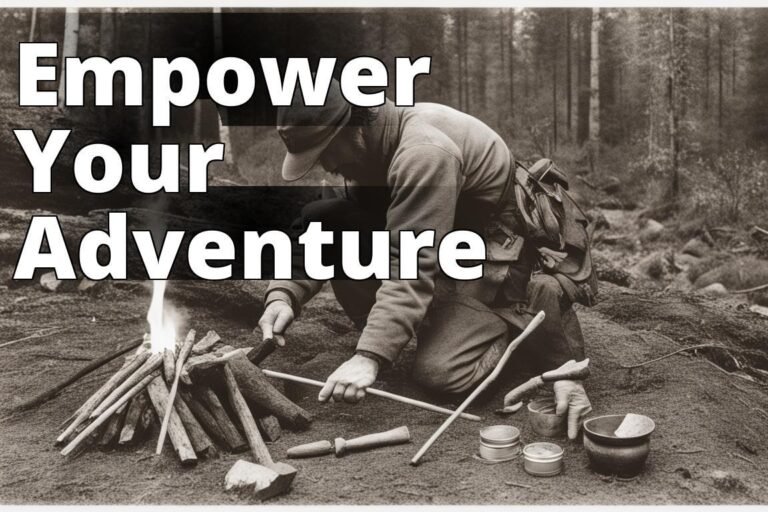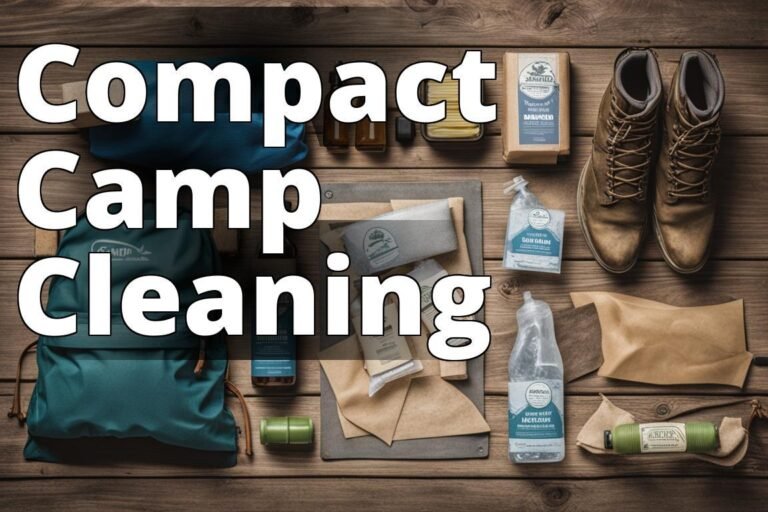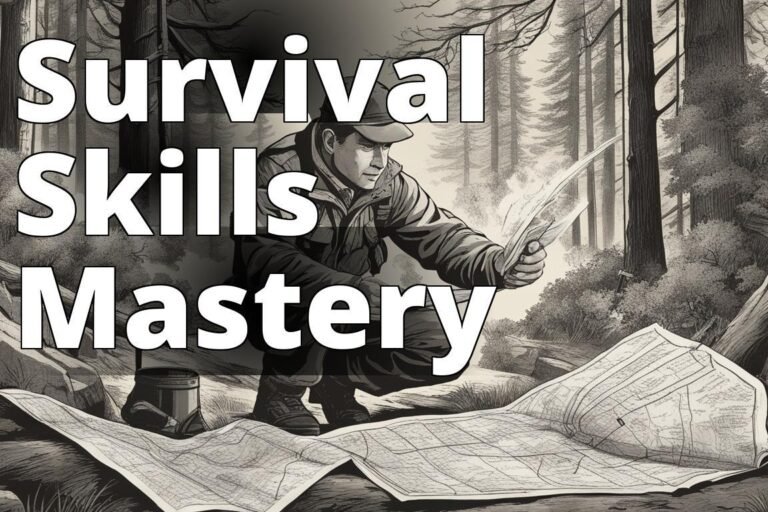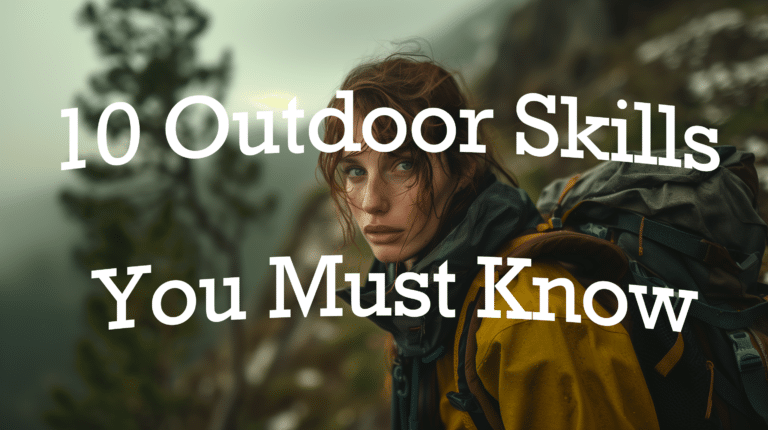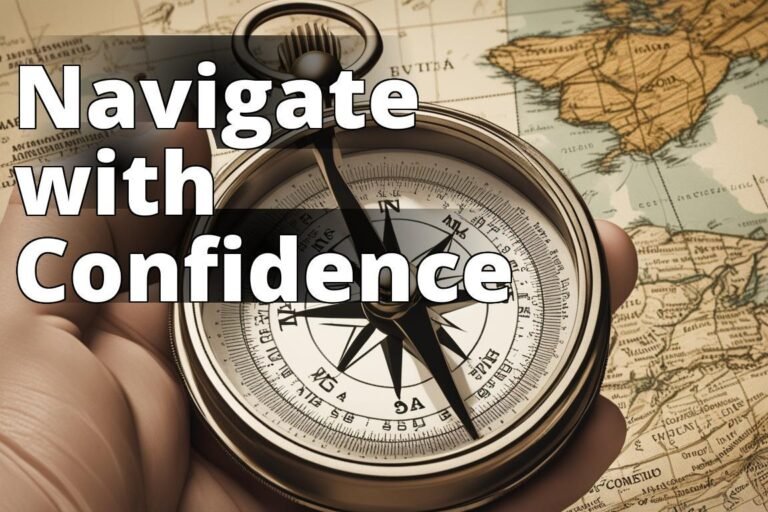10 Essentials for Outdoor Adventures
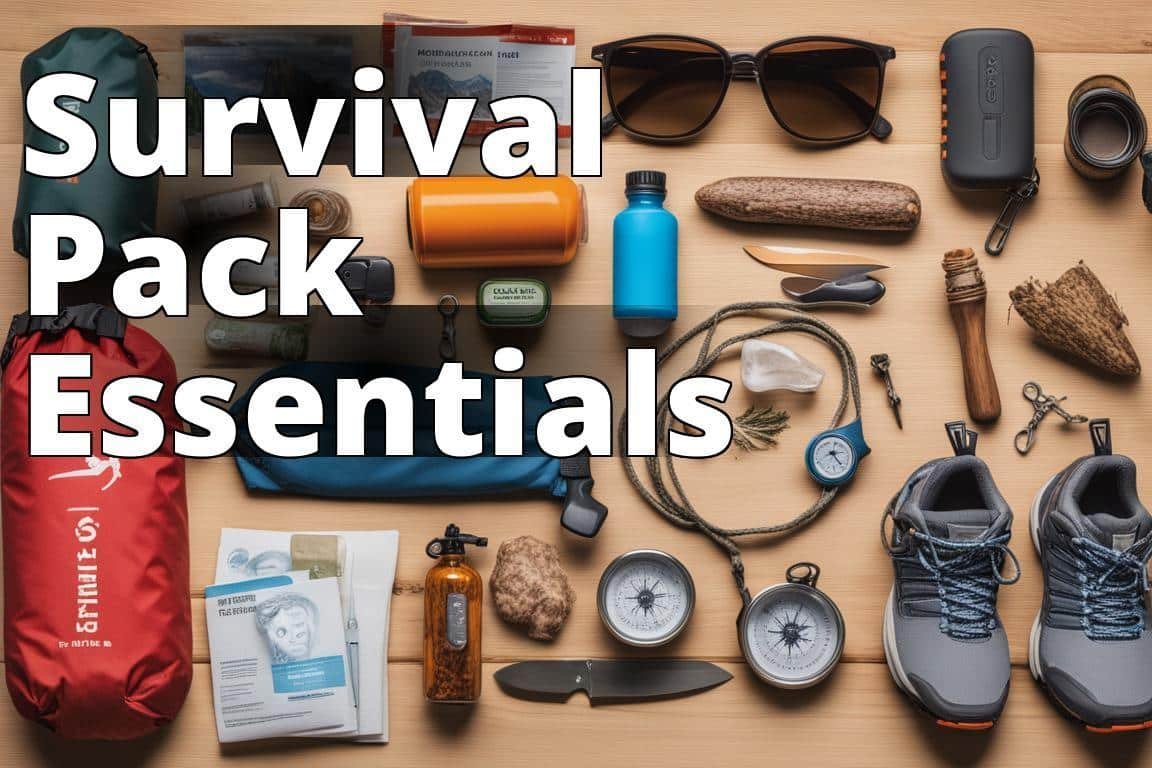
The wilderness does not suffer fools gladly. If there’s one truth I’ve come to respect deeply through my years of outdoor adventures, it’s that preparedness is not just a virtue but a necessity. The concept of the “10 Essentials” for outdoor survival is more than just a checklist; it’s a framework for preparedness that has evolved from the collective wisdom of countless adventurers before us. This list, while seemingly basic, embodies the core principles of survival – adaptability, resourcefulness, and resilience. Armed with these essentials and a solid grasp of survival skills, the wilderness shifts from being a formidable adversary to an expansive playground.
Learn about Emergency Outdoor Survival Pack Ideas
- Navigation: Carry a map and compass for guidance.
- First Aid: Include essentials like bandages and antiseptic wipes.
- Fire: Pack waterproof matches or a fire starter for warmth and cooking.
Navigation
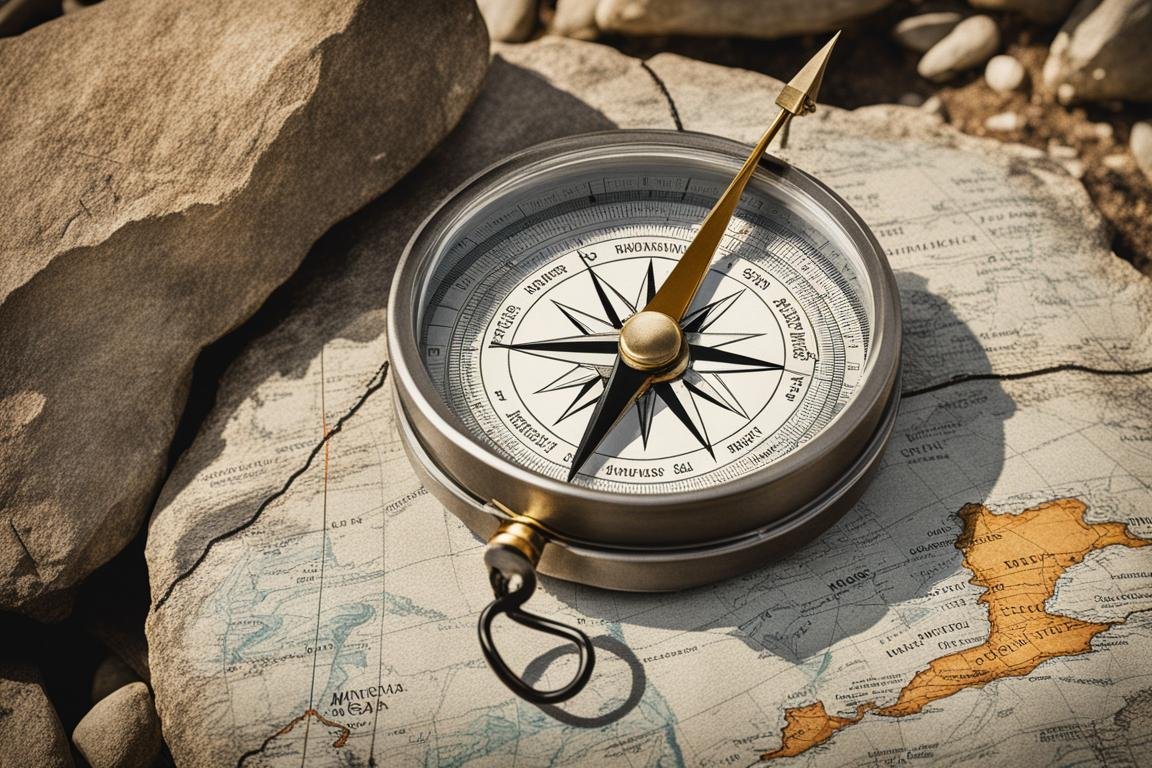
In an age where digital devices have become our primary means of navigation, there’s an irreplaceable value in the traditional compass and map. Understanding topographical maps and mastering the compass are skills that don’t just serve as backups for when your GPS fails; they connect you more deeply with the terrain. I recall a time when a malfunctioning GPS could have turned a routine hike into a crisis. It was the humble compass and my knowledge of reading contours on a map that guided us back to safety.
Insider Tip: Always double-check your map’s scale and ensure your compass is properly declinated for the area you’re exploring.
Headlamp
As darkness falls, a headlamp becomes your lifeline. It’s not merely about the convenience of having your hands free; it’s about safety. A reliable headlamp with a strong beam and durable batteries is non-negotiable. I remember a night when a sudden storm forced us to navigate treacherous terrain in the dark. Our headlamps didn’t just light the path; they kept us focused and calm in a situation where panic could have been disastrous.
Insider Tip: Opt for a headlamp with a red light mode to preserve night vision.
Sun Protection
Sun protection extends beyond sunscreen; it includes sunglasses, hats, and protective clothing. The sun’s rays can be as unforgiving as any cold snap. I’ve seen severe sunburns and heat strokes turn an adventure into a painful ordeal. Equipping yourself against UV exposure is a simple yet often overlooked aspect of outdoor survival.
First Aid
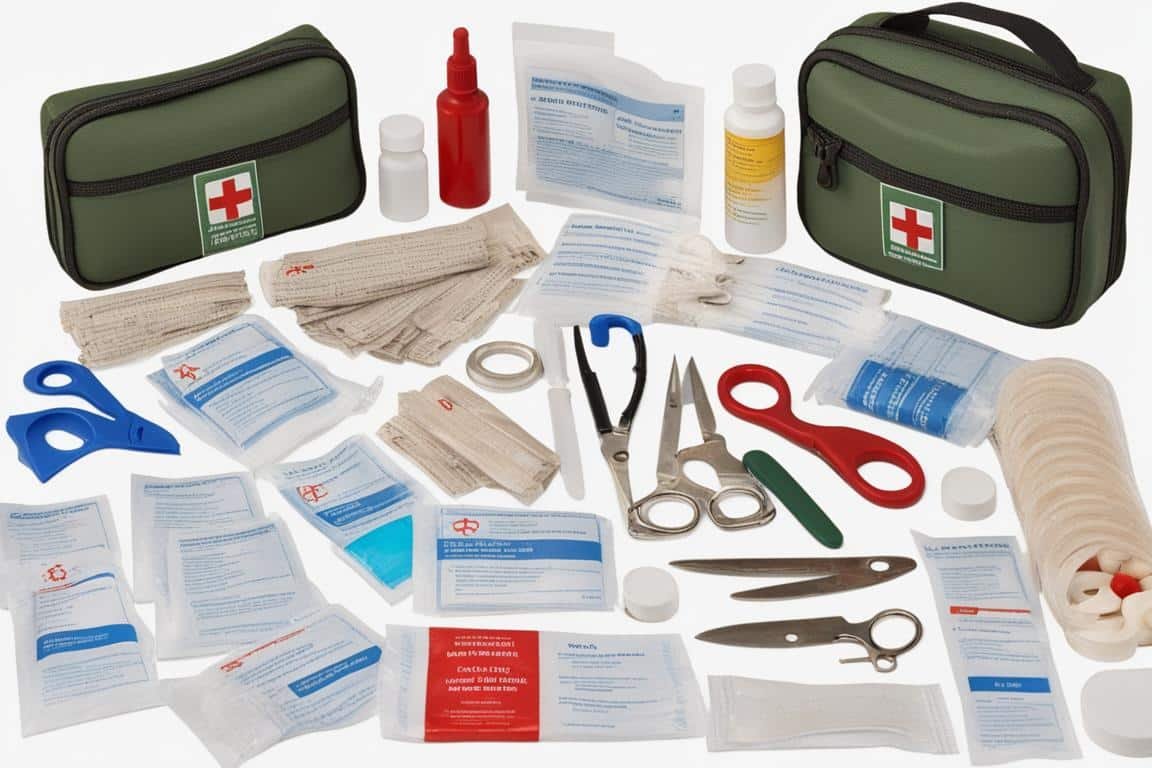
A first aid kit is your first line of defense against minor injuries and potentially serious health issues. Tailor your kit to the specific risks of the environment and your group’s needs. Knowledge of first aid procedures is equally crucial. The ability to respond effectively to injuries can make the difference between a minor setback and a life-threatening situation.
Insider Tip: Regularly review and replenish your first aid kit. Expired or used items are of no help in an emergency.
Knife
The versatility of a good knife cannot be overstated. From preparing food to making repairs, a knife is an indispensable tool in the wilderness. My knife has been a companion in creating shelter, sparking a fire, and even first aid in emergencies. Choose a durable, sharp knife that fits comfortably in your hand.
Fire
The ability to start a fire is synonymous with survival. Not only does it provide warmth and cook food, but it also signals for help. Waterproof matches, lighters, and fire starters should be part of your kit. Remember, it’s not just about having the tools but mastering the skill of fire-making under various conditions.
Shelter
Shelter is your refuge against the elements. Whether it’s a high-tech tent or an improvised lean-to, understanding how to create shelter can save your life. On a trip where a sudden blizzard made it impossible to continue, our ability to quickly erect a temporary shelter was crucial for staying warm and dry until the storm passed.
Extra Food
Always pack more food than you think you’ll need. High-energy, non-perishable items can be a game-changer if you’re stranded or delayed. There have been times when extra food turned a potentially dangerous situation into an impromptu campout, allowing us to wait out bad weather or recover from an injury.
Extra Water
Hydration is critical. Carrying extra water, along with the means to purify natural sources, ensures you stay hydrated. I’ve been in situations where access to clean water was limited, and having purification tablets and a filter made all the difference.
Extra Clothes
Weather in the wilderness is unpredictable. Extra layers, rain gear, and moisture-wicking clothing can protect against hypothermia and other weather-related issues. An unexpected plunge into a cold stream taught me the value of always having a dry, warm set of clothes.
Optional: Trekking Poles
While not part of the traditional 10 Essentials, trekking poles have earned their place in my pack. They offer stability, reduce strain on joints, and can be used to test the depth of water or snow.
Insider Tip: Choose poles that are lightweight yet sturdy, with comfortable grips.
The wilderness is a profound teacher, offering lessons in humility, resilience, and respect. Stoic philosopher Seneca once said, “It is not because things are difficult that we do not dare, but because we do not dare that things are difficult.” This rings true for outdoor survival. With the right mindset and the 10 Essentials, you’re not just prepared for the wilderness; you’re embracing the adventure it represents.
For those looking to further equip themselves, consider checking out our affiliate link for a comprehensive, high-quality outdoor survival pack that meets all these essentials and more. (Affiliate Link)
Don’t forget to explore further on our site for more in-depth advice and product reviews:
- /reasons-to-consider-emergency-survival-gear-ideas/
- /emergency-survival-gear-ideas-to-keep-in-your-car/
- /best-emergency-medical-to-know-in-the-outdoors/
- /how-to-survive-lost-in-the-wilderness/
- /best-emergency-survival-tent-review/
- /best-outdoor-hiking-internal-frame-backpacks/
- /best-cold-weather-sleeping-bags-for-the-outdoors/
- /why-you-should-learn-outdoor-survival-skills/
- /best-luxury-hiking-packs-for-extreme-outdoor-hikers/
- /best-lightweight-camping-utensils/
Preparation, skill, and respect for the natural world are the cornerstones of a safe and rewarding adventure. Equip yourself with knowledge and the 10 Essentials, and the wilderness becomes not just navigable but truly enjoyable.
Questions and Answers
Who should have an emergency outdoor survival pack?
Anyone who enjoys outdoor activities like hiking or camping.
What essentials should be in an outdoor survival pack?
Items like a first aid kit, water purifier, and fire starter.
How do I choose the right items for my survival pack?
Consider factors like climate, duration of trip, and your skills.
What if I can’t fit all the recommended items in my pack?
Prioritize items based on your location and potential risks.
Who can help me learn more about outdoor survival skills?
Local outdoor enthusiasts, survival experts, or online resources.
How do I maintain and update my survival pack over time?
Regularly check expiration dates, replace used items, and adjust based on new skills or experiences.




